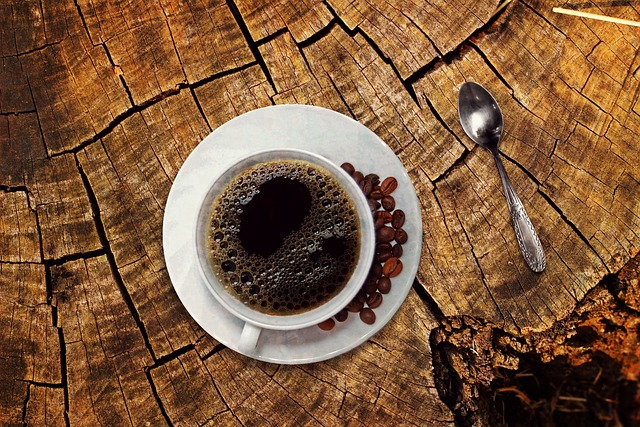Planning and preparing vegan meals for a healthy lifestyle involves choosing versatile ingredients like legumes, grains, and nutrient-rich vegetables for variety and balance. Ensure optimal health by focusing on nutrient density and meeting daily requirements through fortified foods or supplements. A well-organized kitchen with quality containers and a stocked pantry streamlines meal prep. Efficient cooking methods, like stews and curries, save time. Proper storage, including refrigeration and freezing, maintains freshness and nutrition for up to 6 months, supporting a delicious and nutritious vegan lifestyle.
“Unlock a healthier you with our guide to easy and nutritious vegan meal prep! Discover the secrets to planning balanced, plant-based meals that cater to your active lifestyle. Learn how to choose versatile ingredients, set up an efficient kitchen, and master time-saving cooking techniques. From nutrient profiling to storing tips, we’ll show you how to prepare delicious, healthy vegan meals with minimal effort. Embrace a sustainable, wholesome routine today!”
- Choosing Versatile Vegan Ingredients
- Planning Balanced Meals and Nutrient Profiling
- Efficient Kitchen Setup for Meal Prep
- Cooking Methods and Time-Saving Tips
- Storing, Freezing, and Reheating Vegan Meals
Choosing Versatile Vegan Ingredients
When planning vegan meals for a healthy lifestyle, selecting versatile ingredients is key. Opt for foods that can be easily incorporated into various dishes, ensuring both variety and balance in your diet. Legumes like lentils, chickpeas, and black beans are excellent choices as they’re rich in protein and fiber, making them perfect for building healthy dishes. Grains such as quinoa, brown rice, and oats also offer essential nutrients and can serve as the base for numerous meals.
Incorporating leafy greens, broccoli, carrots, and berries is another smart strategy. These vegetables and fruits are packed with vitamins, minerals, and antioxidants, contributing to a healthy diet. They can be quickly prepared and added to salads, stir-fries, soups, or smoothies, making meal prep efficient and nutritious. Remember, the diversity of your ingredients ensures both a delightful culinary experience and optimal nutrition.
Planning Balanced Meals and Nutrient Profiling
When planning vegan meals for optimal health, balancing your plate is key. A balanced vegan meal typically includes a variety of whole grains, legumes, vegetables, fruits, and healthy fats. For instance, pairing quinoa with chickpeas and roasted broccoli ensures you get adequate protein, fiber, vitamins, and minerals. Nutrient profiling is another vital aspect. This involves assessing the micronutrient content of your meals to meet daily requirements. For example, incorporating vitamin B12-fortified foods or supplements is essential, as this nutrient is primarily found in animal products. Similarly, ensuring sufficient iron intake from plant sources like spinach or lentils can help prevent deficiency.
By considering both balance and nutrient density, you create healthy vegan meals that support overall well-being. This approach not only ensures your body gets the nutrients it needs but also makes meal prep more efficient, as you can plan and prepare a week’s worth of diverse and nutritious dishes, saving time and promoting consistent healthy eating habits.
Efficient Kitchen Setup for Meal Prep
Starting your journey with vegan meal prep? An efficient kitchen setup is key to making this process a breeze and ensuring you stick to a healthy lifestyle. Firstly, invest in quality containers designed for meal prep; these will keep your food fresh and appealing. Glass or stainless steel containers are great options as they’re reusable and safe for the dishwasher. Next, organize your kitchen by designating specific areas for chopping vegetables, cooking, and storing ingredients. Prepare your workspace by gathering all necessary tools: knives, cutting boards, a sharp peeler, and perhaps a food processor to save time. Having these in easy reach will make meal prep quicker and more enjoyable.
A well-stocked pantry is also essential; fill it with staples like quinoa, brown rice, lentils, canned beans, and various nuts and seeds. These ingredients form the base of many vegan meals and are packed with nutrients. Herbs, spices, and healthy oils will add flavor to your dishes without adding extra calories or unhealthy fats. With these essentials in place, you’re ready to tackle meal prep and create delicious, nutritious vegan meals for a healthier you!
Cooking Methods and Time-Saving Tips
When it comes to easy and nutritious vegan meal prep, efficient cooking methods are key. Opt for a mix of vegan meals that can be prepared in bulk, such as vegetable stews, chili, or lentil curries. These dishes not only save time but also offer a variety of flavors and textures to keep your diet exciting. Steaming, baking, and pressure cooking are versatile techniques that allow you to cook larger batches while maintaining the healthy benefits of unprocessed ingredients.
To maximize time savings, organize your meal prep like a pro. Plan your weekly menu in advance, create a shopping list, and dedicate one day each week for preparation. Pre-chop vegetables, cook grains in large quantities, and portion out meals into containers. This way, you’ll have vegan meals ready to grab-and-go during busy days, ensuring you stick to a healthy lifestyle with minimal effort.
Storing, Freezing, and Reheating Vegan Meals
Storing vegan meals is a great way to ensure you maintain a consistent flow of nutritious options throughout the week. Most prepared vegan dishes can be stored in airtight containers in the refrigerator for up to 4 days. This keeps them fresh and ready to be enjoyed, promoting a healthy lifestyle on-the-go. For longer-term storage, freezing is an excellent option. Vegan meals freeze well, with most items remaining safe to consume for 3-6 months. Simply transfer portions into freezer-safe containers or bags, label with the date, and pop them in the freezer.
Reheating is a breeze; most methods are as simple as microwaving or heating on the stovetop. Remember that while freezing preserves taste and texture, some foods may experience a slight change in quality after repeated freeze-thaw cycles. To maintain maximum flavor and nutritional value, opt for reheating techniques like steaming or using a slow cooker. This ensures your vegan meals remain not only healthy but also delicious.
Adopting a healthy lifestyle with nutritious vegan meals is achievable through thoughtful planning and efficient meal prep. By choosing versatile ingredients, balancing your plates, and utilizing time-saving kitchen techniques, you can create delicious, wholesome dishes that support your well-being. Remember, proper storage and reheating methods ensure these healthy vegan meals remain safe and tasty throughout the week. Embrace this simplified approach to nutrition and watch your health flourish.

